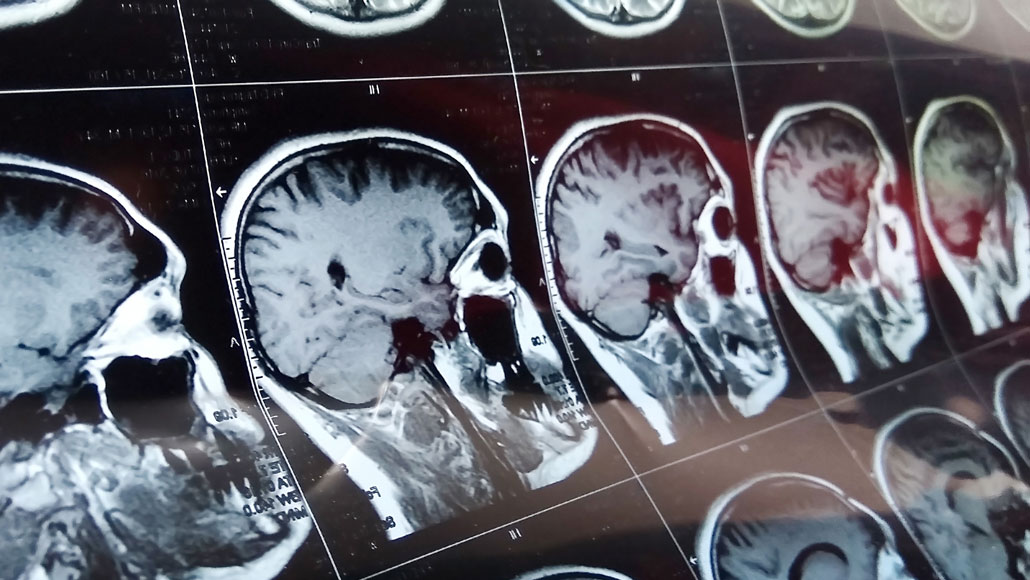Strokes and mental state changes hint at how COVID-19 harms the brain
New clues emerge about relatively rare, but potentially severe, neurological symptoms

A new survey describes a range of neurological and psychiatric symptoms in patients hospitalized with COVID-19 (general brain MRI images shown).
Ildar Imashev/iStock/Getty Images Plus








